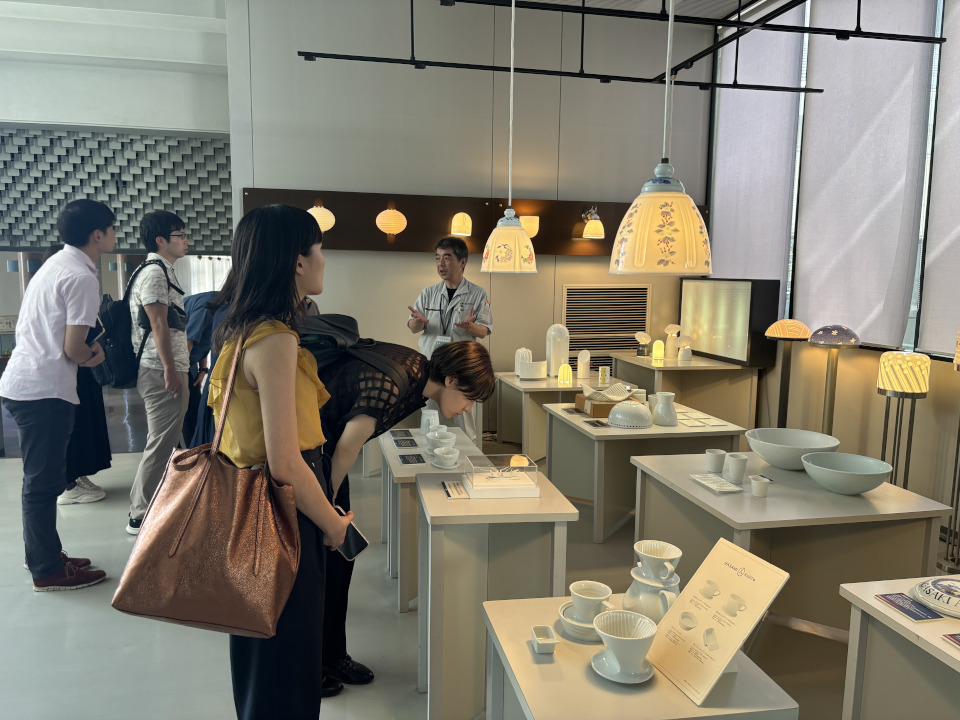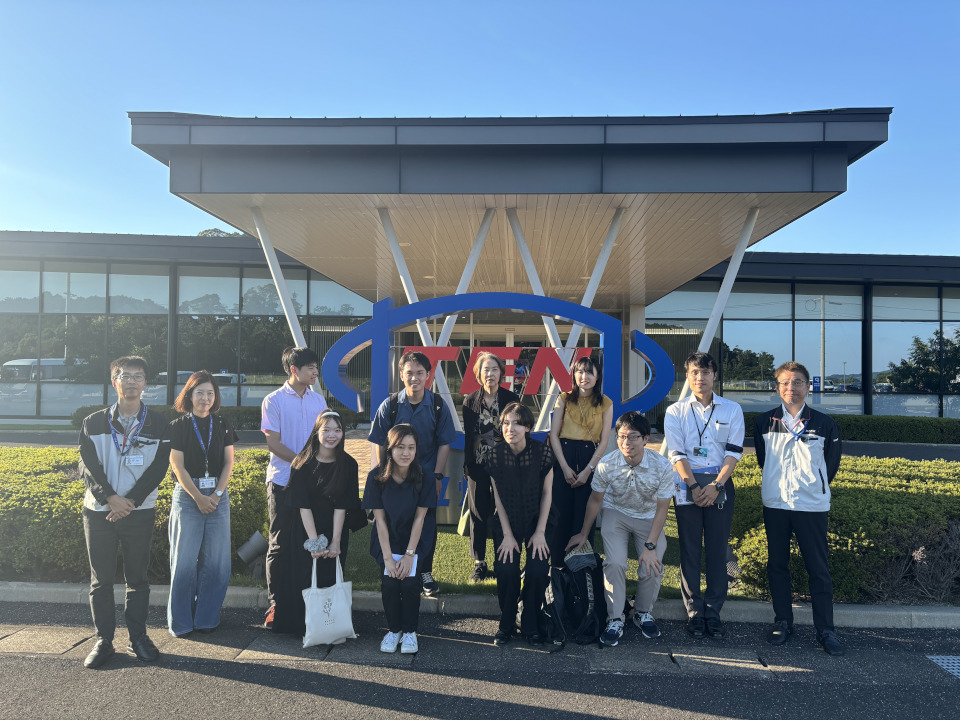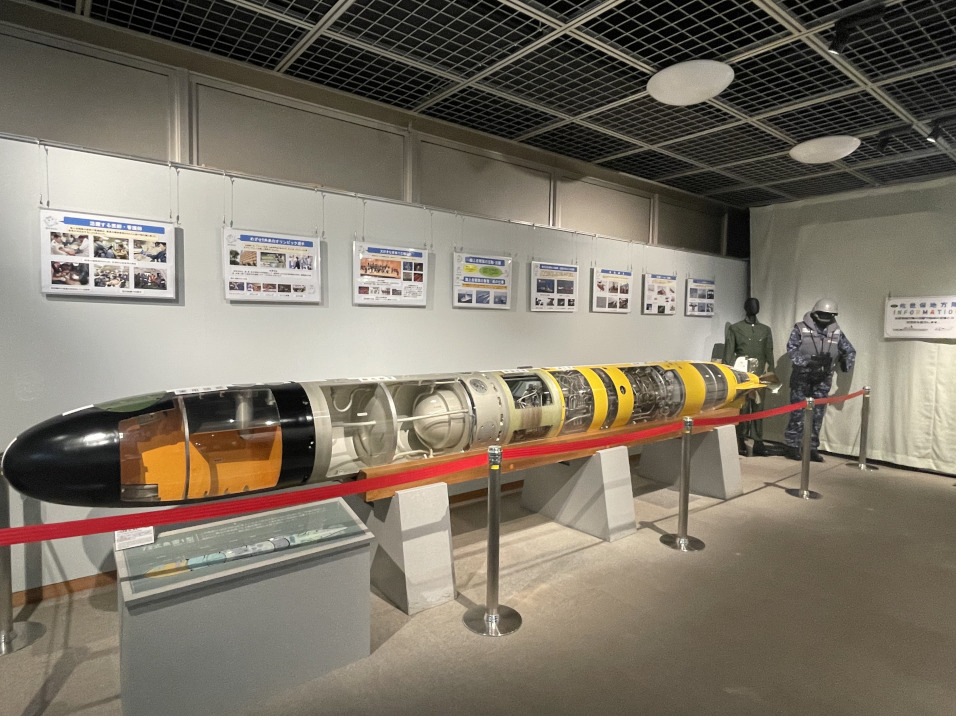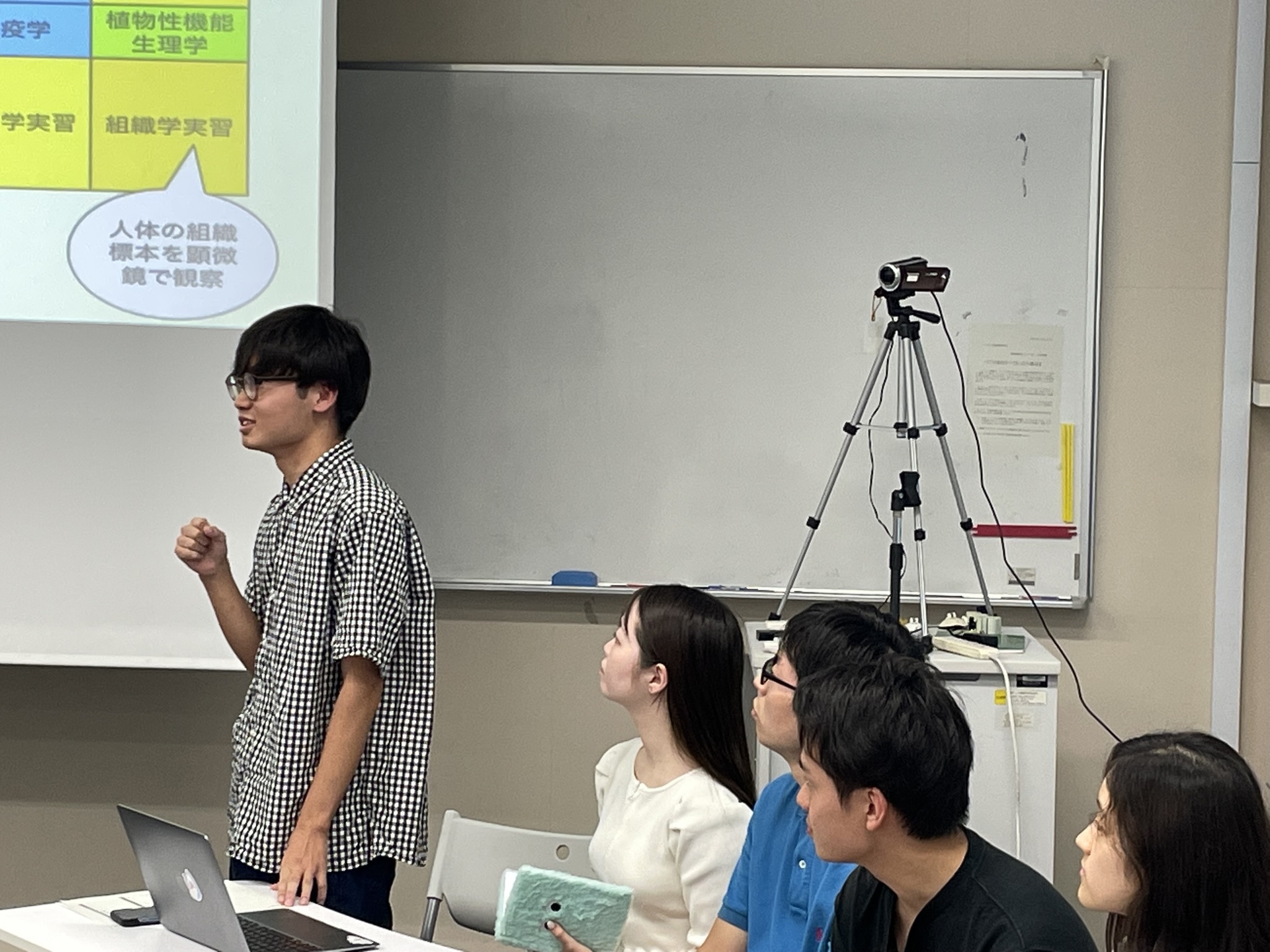- HOME
- Activities
- Regional Studies List
- Regional Studies Details
2024 KIP Nagasaki Trip
The recent Nagasaki regional study trip involved a three-day visit to Sasebo City and the neighboring Hasami Town. A total of nine participants, including KIP students and working professionals, joined the program. In Nagasaki, a region where the history of modernization can still be glimpsed, we explored local industries and the role of National Colleges of Technology ("KOSEN"), Sasebo College by visiting companies, industrial facilities, and Sasebo National College of Technology (hereafter referred to as Sasebo KOSEN). On the first day, participants visited the Ceramics Research Center of Nagasaki in Hasami Town and Kyushu Ten Limited in Sasebo City. We gained insights into the traditional craft of Hasami-yaki pottery and the vital role of communication technology industries in today's IoT-driven world. They also had the opportunity to hear directly from professionals supporting these industries. On the second day, we learned the history of Sasebo, which thrived as a naval port city for the Japanese Navy, by visiting the Japan Maritime Self-Defense Force Sasebo Historical Museum (Sail Tower). Later, we traveled to Sasebo KOSEN, where we learned about the types of education and research conducted at the college, as well as the interests and aspirations of its students. Because most of us had never talked with KOSEN students before, the interactions with the students provided us with valuable information. The third day focused on a discussion session with KOSEN students. Two topics were covered: "The Digital Divide" and "Politics," the latter being this year’s project theme. This was KIP’s first time visiting a KOSEN during a regional study trip, and the experience proved to align well with the unique characteristics of KIP’s regional programs. The KOSEN system’s emphasis on practical education to nurture engineers in various regions and its reflection of local industrial characteristics in specialized courses made it an excellent match for KIP’s objective of learning through direct engagement with local industries and the voices of people in those communities.

【Schedule】
September 13 (Fri) Visit to Ceramics Research Center of Nagasaki and Kyushu Ten Limited.
September 14 (Sat) Visit to Sail Tower and Sasebo KOSEN (exchange meeting with college of technology students, lecture by Mr. Kubo)
September 15 (Sun) Visit to Sasebo KOSEN (research presentations and discussions with college of technology students)
【Ceramics Research Center of Nagasaki】

Mr. Yoshida of the Ceramics Research Center gave us an overview of the efforts of the center, which was established in 1930. He told us an interesting story about one of their efforts to support the ceramic industry, when the demand for ceramics in general and the number of producers are on the decline. They are strengthening ties with the local community by visiting 50 nearby ceramic studios once a year to interview them about their current conditions. Although the industry has a long history, it is evolving while incorporating cutting-edge technology, and we observed, for example, production using 3D printing technology. In addition to such technological aspects, the Hometown Tax Donation has increased significantly and Hasami pottery is now being purchased by a younger generation through marketing utilizing SNS. Hasami pottery is also supported by a diverse range of people, including women, couples, and families, which was an interesting fact that we could not have known without actually talking to those who engage in the industry.
【Kyushu Ten Limited】

At Kyushu Ten, We were given a brief introduction to the organization, and then we took a tour of the facilities. During the company briefing, we were shown multiple instances of how Kyushu Ten supplies the core technology that enables services for large enterprises, such as network communication base stations, drive recorders, and IoT-based equipment management systems used in hospitals and factory sites. We sometimes associate particular goods or services with the large corporations that provide them, but I came to realize how important businesses like Kyushu Ten, with their cutting-edge technology, support various industries throughout Japan. I felt that my understanding of how industries across the nation are supported had significantly deepened. Mr. Minase, who works for Kyushu Ten, told us that decision making and execution is faster at Kyushu Ten than at large companies. Their enthusiastic explanation of the value of advancing a project while the excitement is still fresh and how individual effort directly leads to tangible results left a strong impression on me.
【Sail Tower】

I visited the Maritime Self-Defense Force Sasebo Historical Museum, also known as “Sail Tower.” We learned about the history of Sasebo, which has continued to play a part in protecting Japan's seas as a supply, rest, and maintenance base for naval vessels since the day the Sasebo Chinjuu Office was established in the 19th century. The exhibit began with how naval facilities came to be established in Nagasaki and Sasebo. It went on to the former Imperial Japanese Navy's track record in the Russo-Japanese War and World Wars, followed by the history and current activities of the modernized Maritime Self-Defense Force.
【KIP Students' presentations to KOSEN students】

The purpose of this event was to deepen the interest and understanding of college students by introducing their career choices, campus life, and their fields of study and research. After the five KIP science students presented their experiences, KIP members and KOSEN students were divided into small groups and rotated among them, allowing time for Q&A and free exchange. I feel that it was a very valuable experience to hear stories rooted in the Sasebo and Nagasaki regions from the perspective of local students through a casual style of exchange. I was also impressed by the opportunity to listen to their thoughts and concerns about their career paths after graduation from the KOSEN. Many of the students there are considering taking an Advanced Engineering Course or transferring to a university, instead of finding employment. In this exchange program, since students from a wide range of grades from 1st year to 5th year participated, we were able to hear opinions from a variety of perspectives, including those who have already experienced internships, those who have received job offers, those who have decided to go on to university, and those who are unsure about whether to go on to higher education or find a job.
【Speech by Mr.Kubo】
Following the KIP students' talks, KIP alumnus and Sasebo KOSEN graduate Mr. Fumimasa Kubo gave a lecture on his experiences. Mr. Kubo, who has a wealth of experience having once worked and then returned to the academia field, talked not only about his career and current research, but also about “what is fulfillment and purpose of life” and “how to decide one's career path” for us who are going to choose our future paths. One of the most impressive things he said was that intuition is an important factor when deciding on a career path. He said that intuition is an expression of one's honest feelings, accumulated knowledge, and thoughts, and therefore it can be trusted. He concluded his lecture with the message that it is important to challenge various things and find out what one wants to do to strengthen one's intuition. As the participants still have to make a major career choice of finding a job, it was a valuable experience for us to hear from the senior about his experiences. This regional study trip was supported by the cooperation of Mr. Kubo. Once again, thank you very much for your efforts.
【Research Presentations by KOSEN Students】
On the last day of the trip, a research presentation was given by Sasebo KOSEN students. The research presentations revealed that technical colleges offer practical learning in cooperation with the local community not only in their major courses but also as extracurricular activities. For example, “Nagasaki Tsunagood”(長崎つなぐっど。) takes Nagasaki's prefectural products as its subject matter, from product planning to product sales. In fact, we learned that they consider which companies to ask to develop products, what age range of people would buy them, whether there are similar products, and conduct marketing activities such as using social networking. They also told us that many of the people who actually buy their products are from the local community, and we felt that the local community is also very supportive of the KOSEN students. By collaborating with companies from planning to sales, not only in their own specialized fields, students were able to learn about society as a whole from a practical standpoint. In other research presentations, the students were also engaged in practical technologies utilizing AR and IoT, microbial power generation, etc., acquiring a high level of technical skills and expertise from an early stage, and we felt that this is a strength that only KOSEN can offer.
【Discussion with KOSEN Students Topic:Politics】
The first discussion was held under the theme of “Should the age of eligibility for election be lowered? Should there be an upper limit?” In the group discussion, those in favor of lowering the age of eligibility argued that it would attract the interest of young people, that it would enable them to start their political careers early, and that it would be natural for young people under the age of 25 to run for office if they are well informed about politics. On the other hand, those opposed to the proposal expressed concerns that young people under the age of 25 would be subjected to criticism of their candidacy, that young people from high-income groups who can pay millions of yen in deposit money would have an unfair advantage, and that young people with little social experience would not be able to stand up to the people. After the group discussion, the KOSEN students from each group presented their opinions. Some said that a politician's ability is not necessarily measured by age, but that social experience, such as working and paying taxes, is more important, while others supported the idea of setting an upper limit on candidacy because it would lead to a decrease in the average age of politicians in the long run.
【Discussion with KOSEN Students Topic:Digital Divide】
This discussion was about how to eliminate the digital divide between the young and the elderly. Some of the groups stated that in order to make it practical for all generations, it is necessary to simplify functions and operations so that the minimum necessary procedures at hospitals and government offices can be done digitally, while others argued that in Japan, it is difficult to use only digital technology. The group emphasized the importance of balancing the digital and analog worlds because of the difficulties of using only digital technology in Japan, where disasters are common. One group stated, “It may be more effective to visit people to teach digital technology rather than to create a workshop to teach digital technology. The discussion was grounded in the facts, such as “We don't have enough human resources, and visiting people is not a realistic measure. One KOSEN student shared his experience and technology he learned as an intern for an example of intuitive operability, and another shared an example of using MR (Mixed Reality). The participants' expertise was well demonstrated in the discussion.


